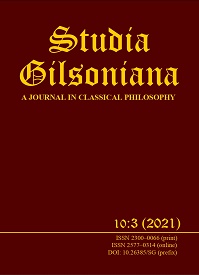On the Foundational Compatibility of Phenomenology and Thomism
On the Foundational Compatibility of Phenomenology and Thomism
Author(s): Daniel C. WagnerSubject(s): Christian Theology and Religion, Philosophy, Theology and Religion
Published by: International Étienne Gilson Society
Keywords: Edmund Husserl; Karol Wojtyła; Thomism; phenomenology; epoche; idealism; realism;
Summary/Abstract: Jacques Maritain criticized Husserl’s phenomenological method—the ἔποχή—as being incompatible with the realism of St. Thomas Aquinas. Maritain equated phenomenology with idealism, holding that it universally negates the existence of known objects as things in the world. Not surprisingly, then, a tendency has arisen in the thought of Thomists commenting on Karol Wojtyła’s phenomenological-Thomism to distance Wojtyła’s method from that of Husserl. However, since Wojtyła himself saw fit to appropriate the phenomenological method, Thomists will do well to reevaluate Husserl’s ἔποχή. This study shows that Husserl’s phenomenology is formulated as an Aristotelian science, consciously presupposing the existence of its subject matter and not universally negating the existence of known objects as things in the world. The ἔποχή, thus, is compatible with the realism of the Angelic Doctor, and the phenomenological-Thomism of Karol Wojtyła stands on firm realist ground.
Journal: Studia Gilsoniana
- Issue Year: 10/2021
- Issue No: 3
- Page Range: 579-607
- Page Count: 29
- Language: English

